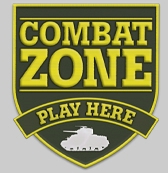Diplomacy is a time-proven, classic seven-player game with
fine balance between all the countries. Sometimes, however, seven
people aren't available to play, or eight or more people show up for
the game. "Escalation" is a system that provides a solution to that
problem and a unique game experience each time it's played.
Diplomacy can also be a long game. To speed things toward a quicker conclusion, try Double Diplomacy.
Escalation Diplomacy
To play Escalation, set out the board with no pieces on it.
Each player takes a different-colored set of pieces. If there are
more than seven players, either use some other sort of tokens or have
two players share a color -- one player aligns his pieces
north-to-south, and the other aligns them east to west. Decide who goes
in what order during the Escalation Placement phase of the game. An
easy way to do this is to let the owner of the game place first,
followed by others in alphabetical order by last name.
Decide on the number of pieces players will place during the Escalation. Recommended numbers of pieces are listed below.
2 players: 12
3 players: 8
4 players: 6
5 players: 5
6 players: 4
7 or more players: 3
Starting with the first player, each player gets a turn to place one
piece on the map. This is the Escalation. Players who go first have
more choices but those who place later have more information to react
to. The first piece can be an Army or a Fleet, and it can be on any
legal, unoccupied space, including a Supply Center.
Continue placing pieces one at a time until the agreed number of pieces is placed.
Each player owns any Supply Center containing one of his pieces at the start.
Play the Spring '01 and the Fall '01 seasons as in a normal game. As
part of the Winter '01 resolution, however, each player writes down
three supply centers under his control that he will consider his "home
centers" (where he can build units) for the rest of the game. Players
are not limited to declaring traditional home centers. Their centers
don't even need to be adjacent. For example a player could declare
Brest, London, and Naples as his three home centers if he owns them in
the Winter of 1901.
Discussions can be limited to tableside only (all discussions open
to all), none ("gunboat diplomacy"), or traditional, private talks. For
four or fewer players, it's recommended that there be no discussions
except at the table.
As a teaching device for two players, increase the number of
starting pieces to 17. This makes the Escalation phase more intense and
stresses the need to plan ahead.
Double Diplomacy: Dreadnoughts and Stormtroopers
The conflict that led up to and concluded in the First World War saw
rapid developments in both economies and military technology.
Entrenched stalemate lines and strategic deadlocks led to new styles of
warfare designed to break open the fronts. In classic Diplomacy, there are also stalemate lines across the board in various areas and directions.
The purpose of Double Diplomacy (originally called Dreadnought Diplomacy)
is to bring into the game elements that can break those lines. Further,
it makes it possible for the strongest countries to leap ahead of their
weaker neighbors at an ever greater pace as the game goes on, thus
rewarding brute power and bringing the game to a quicker end.
The basic rules are as follows --
1. Starting in 1904 and on every even year thereafter, countries can
build in their home centers Double Fleets (Dreadnoughts) and Double
Armies (Stormtroopers). Building or maintaining a dreadnought or
stormtrooper unit requires two supply centers each.
2. If a player has a standard Army unit in a home supply center
during the Gaining and Losing Units phase of a Winter turn, then he can
convert that unit to a Double Army (Stormtrooper). Likewise, a Fleet
can be converted to a Double Fleet (Dreadnought).
3. A player can have as many Double Armies and Double Fleets as he can build and maintain with supply centers.
4. When a Double Army moves or supports, it counts as a force of
two. It can be convoyed as a normal army, however (it doesn't require
two fleets, or a double fleet, to convoy).
5. When a Double Fleet moves or supports action from or into a sea
province, it counts as a force of two. When a Double Fleet positioned
in a coastal province moves or supports action against another coastal
province, then it counts only as a force of one, like a normal fleet.
6. If, at the end of a Fall turn, a player doesn't control enough
supply centers to maintain all of his units, then Double Armies and
Double Fleets can be reduced to normal Armies and Fleets, rather than
disbanding units entirely, to bring the unit count into line with the
available supply centers.
 Edi Birsan is considered the first Diplomacy
world champion for his win in 1971BC, the first championship
invitational game. He has won numerous championship games since then in
North America and worldwide and is universally considered one of the
game's top players. More importantly, he has striven tirelessly for
over three decades to promote Diplomacy play in all its forms, at all levels, all around the world.
Edi Birsan is considered the first Diplomacy
world champion for his win in 1971BC, the first championship
invitational game. He has won numerous championship games since then in
North America and worldwide and is universally considered one of the
game's top players. More importantly, he has striven tirelessly for
over three decades to promote Diplomacy play in all its forms, at all levels, all around the world.

